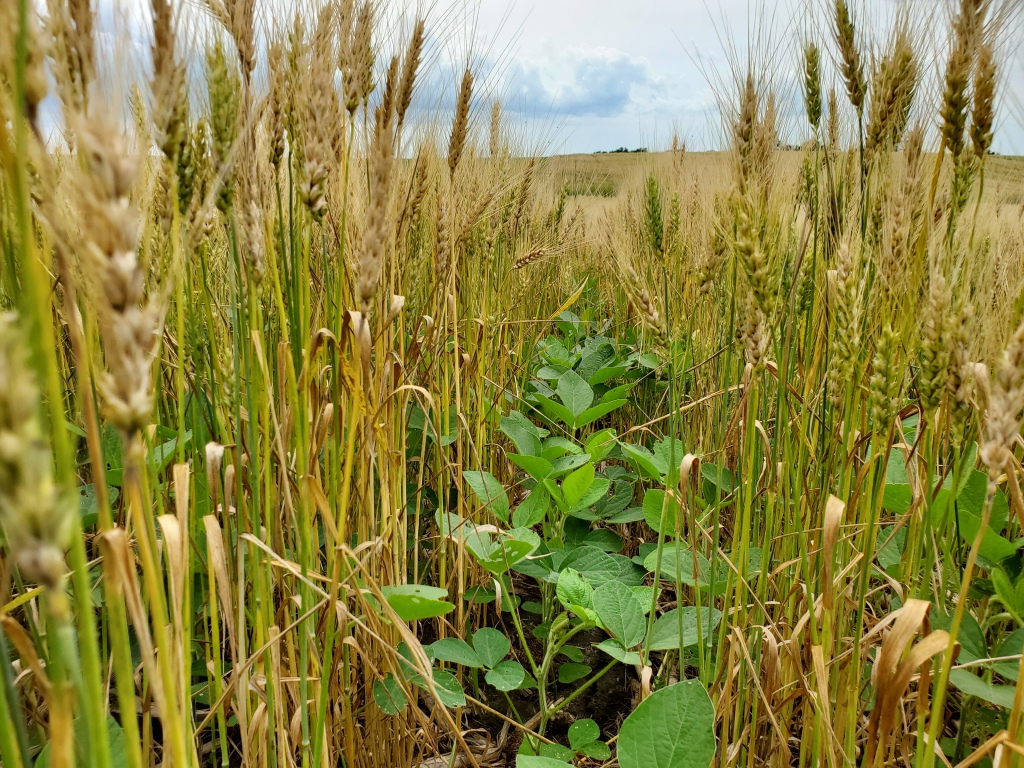
Iowa Learning Farms hosted a webinar on Wednesday about multi-cropping, and the soil health, environmental, and economic benefits of this practice.

Multi-cropping, which means more than one crop is harvested from the same field in the same year, can be done in several different ways. Relay-cropping is one option, where two crops with overlapping growing seasons are grown in the same field. Another option is double cropping, which is when two crops are grown and harvested together. Poly-cropping is when three or more crops are grown together. Finally, inter-cropping is when one or more crops are planted into an existing crop prior to harvest.
Ross Evelsizer, Watershed Planner & GIS Specialist at Northeast Iowa RC&D, explained what Iowa farmers have been trying and how multi-cropping can be done successfully. Iowa farmers are having good luck with relay-cropping. Crop combinations that are being used successfully in Iowa include pairing soybeans with a fall or spring planted small grain. Corn setups have been less successful, but some participants have tried corn with forage mix or cowpeas planted between 60 in. corn rows.




Benefits of multi-cropping for the farmer or landowner include diverse investments, improved soil health, weed suppression, and flexibility. From an environmental standpoint, multi-cropping can reduce soil erosion, reduce disturbances, and increase biodiversity. Evelsizer shared a producer’s relay-crop budget vs. their soybean production budget. Although there was a yield reduction for the soybeans grown in the relay-cropping system, the added revenue from the cereal rye meant that, overall, revenue for the relay setup was higher. The profit for the relay system was also significantly higher than that of the soybeans alone.
To learn more about multi-cropping, watch the full webinar here! You can also connect with Multi-Cropping Iowa on Facebook or Twitter!
Join us next week to learn about the benefits of mowing less. Adam Janke, an Assistant Professor and Extension Wildlife Specialist at Iowa State University, will present a webinar titled “Exploring the Economic, Ecological, and Aesthetic Case for Retiring (Or at Least Down-Sizing) the Mower on Farms and City Lots”.